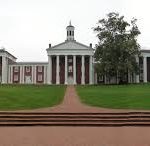What is Princeton University Known For?
What is Princeton University known for? The answer is a great deal. To start, Princeton is one of the oldest colleges in the country (it was founded in 1746) and is consistently ranked as one of the top universities in the U.S. and the world. It has had three U.S. Presidents attend (James Madison, Woodrow Wilson, and John F. Kennedy) and two graduate from it—Kennedy transferred to Harvard. If you’re planning to apply to Princeton, here are some unique aspects of the university that you should know about. Location: Princeton, New Jersey Undergraduate Enrollment: 5,813 Acceptance Rate: 5% Middle 50% SAT: 1500-15640 Middle 50% ACT: 34-35 Princeton’s admissions process places a stronger emphasis on academics than that of peer institutions such as Yale, Harvard, and Stanford—even requiring a graded paper as part of the application. While students still need strong extracurricular profiles, admitted students often outperform their rejected peers in classes and standardized tests. Admissions officers view prestigious academic programs extremely positively, such as the Governor’s School and academic research experience. In fact, research can provide a great topic for a supplemental essay. Princeton also places a relatively stronger value on STEM achievements, though the prioritization is not as strong as that of MIT. Princeton has established itself as one of the best-known and most respected universities in the world over its two-and-a-half-century history. Princeton’s exceptional academics and Ivy League status are how many people know the university, but Princeton is known for more than just that. Junior Paper: What is Princeton known for academically? One of the defining aspects of an undergraduate education at the university is its junior paper and senior thesis. The junior paper—also known as the junior project, or simply as the “JP”—serves as a precursor to the senior thesis. The “JP” allows students to familiarize themselves with the independent research and skills necessary to complete their senior thesis and receive individual attention from their faculty advisor. Senior Paper: Almost every senior at Princeton writes a senior thesis—some engineering students pursue a project—which allows them to explore their academic interests and grow skills such as creativity, research, discipline, and independent thought. Senior research project topics know almost no bounds and provide an opportunity for students to work one-on-one with faculty. Since nearly every senior has to write a thesis, it builds kinship among the class. Princeton School of Public and International Affairs: One of Princeton’s most well-known schools, the Princeton School of Public and International Affairs, is often ranked among the best places to study international relations and public affairs in the country, if not the world. Formerly known as the Woodrow Wilson School of Public and International Affairs, named after Woodrow Wilson—the 13th president of Princeton University, governor of New Jersey, and 28th president of the United States—the school was renamed in 2020 when the Princeton Board of Trustees determined Wilson’s racist thinking and policies made him an inappropriate namesake for a school. Prominent Faculty: Princeton University has been home to many distinguished faculty members across the humanities and social sciences. Celebrated authors Joyce Carol Oates and Toni Morrison both taught at the university. Other notable faculty include economist Paul Krugman, former Federal Reserve Chair Ben Bernanke, and the late mathematician John Nash, whose life inspired the film A Beautiful Mind. Rhodes Scholars: Helping Princeton solidify its position among the country’s elite academic institutions is the large number of students who have gone on to become Rhodes Scholars, one of the most prestigious and selective scholarships in the world. Princeton has sent 217students to earn postgraduate degrees from the University of Oxford, trailing only Harvard (385) and Yale (263)—the next closest schools to Princeton are Stanford and the U.S. Military Academy, both with 102 Rhodes Scholars. Eating Clubs: A common answer to the question of “what is Princeton known for?” is its eating clubs. Unique to Princeton, eating clubs date back to the late 1800s and are a popular dining and social option for juniors and seniors at the university. There are currently 11 eating clubs—the number has fluctuated throughout the years—each with its own character and personality. There are two types of eating clubs at Princeton: open and selective, or, as known on campus, sign-in and bicker (a two- or three-day process used to determine acceptance). Athletics: Sports also play a considerable role in campus life at Princeton. The university’s football team participated in the first-ever college football game against in-state rival Rutgers in 1869. Princeton’s football team has won 28 national championships—though only 15 are officially recognized by the NCAA. Unfortunately for Tiger fans, the program’s most recent title came in 1922. Despite its lack of recent success, Princeton participates in some of the oldest rivalries in football—Princeton vs. Yale dates back to 1873, Princeton vs. UPenn goes back to 1876, and Princeton vs. Harvard has been played since 1877. One of Princeton’s most notable traditions is also football-related. Unlike many other college traditions, the Bonfire occurs only sporadically—it’s built on Cannon Green and only held when Princeton’s football team beats both Harvard and Yale in the same season; consequently, not every student gets to participate. The most recent Bonfire was held in 2021, and the last Bonfire before that was in 2018. [amp-cta id="9459"] Princeton students are guaranteed on-campus housing for all four years of college and 96% of students live on campus in one of the university’s seven residential colleges: The residential colleges have their own unique identities, host a variety of events, and even compete against one another in intramural sports. Princeton University has one of the most generous financial aid programs in the country. Admissions are need-blind—the school does not consider an applicant’s financial situation when making admissions decisions—and 100% need is met. Princeton is also a no-loan college; it replaces student loans with grant aid that does not require repayment. Princeton is one of the few universities in the country that applies the same financial aid policy to both domestic and international students. Princeton’s campus consistently ranks among the most beautiful college campuses in the country. Classic Gothic architecture, shady trees, and exquisitely manicured lawns create a quintessential collegiate atmosphere while more modern buildings (designed by renowned architects) like Lewis Library and Spellman Hall nod to the present. Princeton provides students with an idyllic suburban setting that caters to a world-class college with a global student body—there’s a multitude of dining options, coffee shops, and parks in town. Princeton University is located just a short distance between Philadelphia and New York City, making it easy for students who want to visit, but not live, in a major city. Princeton is one of the most selective colleges in the country. Like other super-selective Ivy League schools, it uses the Academic Index—a student’s overall academic performance represented in a single number—to filter out candidates and expedite the decision-making process. This means that students with weak academic profiles may not even get the rest of their application seen by admissions officials. CollegeVine’s free admissions calculator can help you understand your odds of acceptance into a particular school and show you what steps to take to improve your profile (and your chance of acceptance). Using your grades, test scores, and qualitative factors such as extracurriculars and honors, CollegeVine will give you a clearer idea of your chances of getting admitted to your dream school. What’s Covered:
Overview of Princeton University
Unique Aspects of Princeton University
Academics
Extracurriculars
Traditions

Dorms
Financial Aid
Campus
Location
What Are Your Chances of Acceptance at Princeton?




